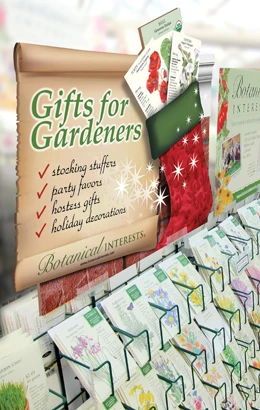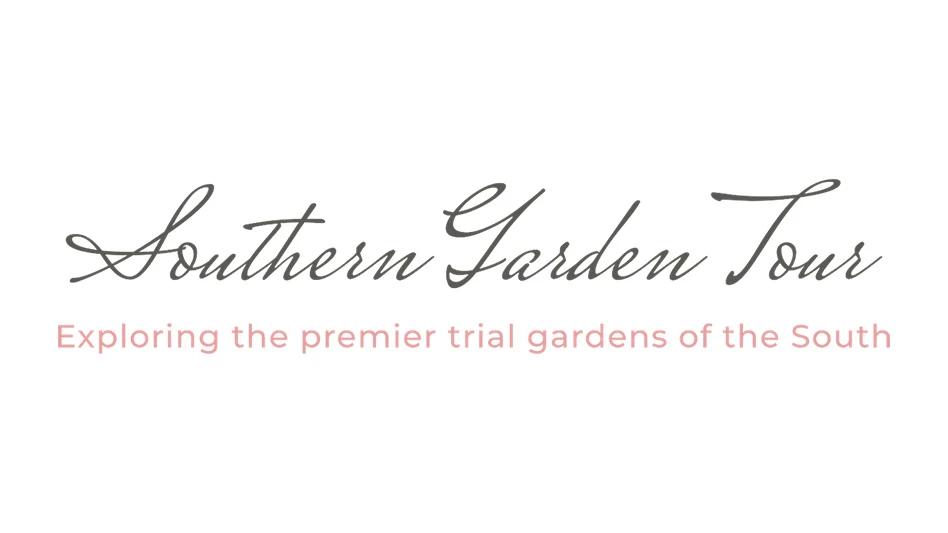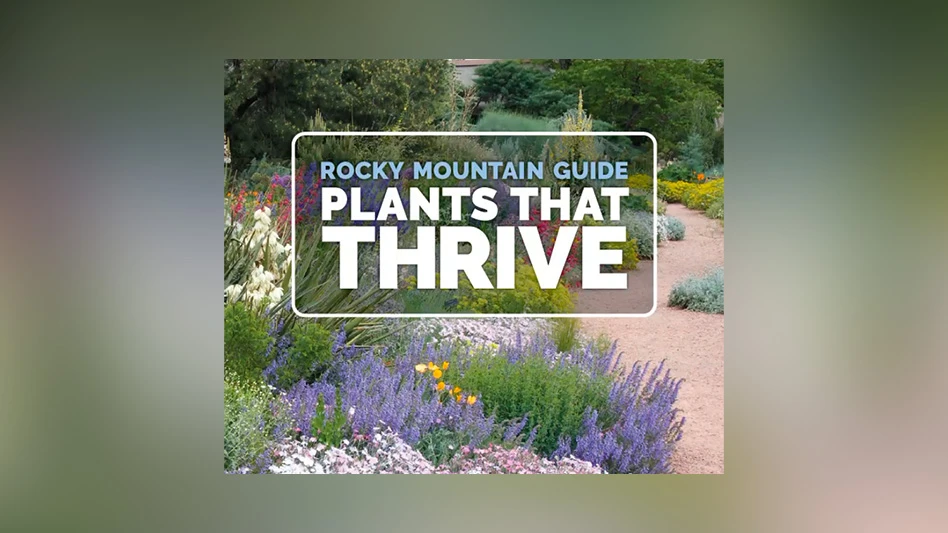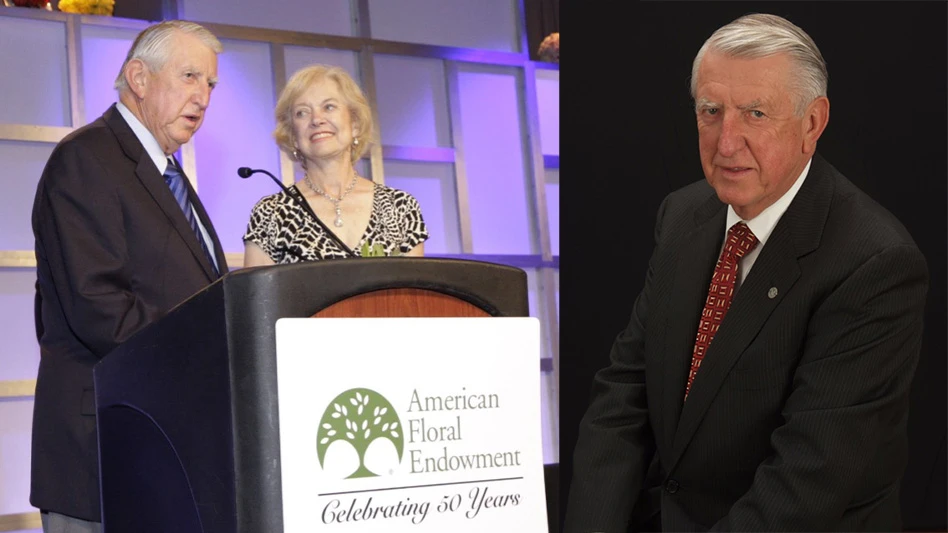
 In a bad economy, retailers need to increase sales in categories that have the potential to be increased. Seed packets comprise one category with significant potential—consumer demand is definitely there—but some effort is required to achieve success. I would love to give you some hints.
In a bad economy, retailers need to increase sales in categories that have the potential to be increased. Seed packets comprise one category with significant potential—consumer demand is definitely there—but some effort is required to achieve success. I would love to give you some hints.
Why should you take my advice? In addition to owning a seed company, I service accounts myself. At one of these stores, with the suggestions I am about to discuss, I took this store up to $40,000 retail or about 1.5 percent of ALL its sales. Since the store carries two other seed lines, seed packet sales are an important part of the total sales. So, how can you achieve this kind of sales volume?
Carry seed ALL YEAR if you don't already. Accounts I service do 10-20 percent of their seed sales in the fall. These purchases aren't just for sowing now, as many consumers buy them as gifts, or to send them to foreign countries, or even to have something attractive to purchase for the fall and winter season.
Another reason fall sales are good for independent garden centers is because no one else sells seed in the fall—the consumer then has to visit your store for seeds. I also believe that a garden center should carry seed all year because it is a garden center. This makes it unique, better, and more in contact with the gardening public.
Location, location, location. Every vendor wants to be in a high-traffic spot, but considering the reasonable price point of seed, good location can double sales pretty quickly. Good location also discourages theft!
When you purchase inventory, don't carry chain-store seed brands. Be unique. Give consumers a reason to come to your store and not visit the discount stores. Also, don't carry 12 suppliers. It just confuses your customers, and you end up duplicating a lot of popular varieties and having a poor overall selection of varieties.
Promote organic seed. Each year, more and more of my stores' customers ask for certified organic seed. I don't believe this is a fad—this trend can only increase. The demand for certified organic seed is also not particularly area-specific; from the coasts to the Midwest, consumers are concerned about the environment and food safety, and they are looking for certified organic products.
Here is the question I get asked the most when servicing accounts: "Are any of your varieties GMOs (genetically modified organism)?" Of course they aren't, and I make it a point to urge them to prominently display this information on their seed displays.
The interest in being sustainable by growing one's own food is also becoming a bigger deal with customers. You've certainly seen that more people are seed gardening. But even more exciting than that, for the first time in a long time, young people are getting into seed gardening.
Class in session. The problem these young consumers face, though, is that they haven't learned how to garden from older relatives. It's your job to educate them. Host seed-starting classes and "Growing your Own Food" classes—education gives your store credibility and encourages additional seed sales and other product sales.
Seeds are not often thought of when Christmas approaches, but seeds are great stocking stuffers and sell well if properly merchandised. "Stocking Stuffer" stickers on seed displays—or on specific displays for Christmas areas to highlight "giftable" varieties—can cause a real spike in December seed sales.
The second-most-common question I get is, "What do I sow now?" I urge retailers to highlight seasonal-to-sow varieties. For example, during early fall in Colorado, I put a "sow now" tag on cool season varieties that will produce a fall harvest. At a minimum, you should have an easy-to-find (or see) "What to Sow When" guide on all the seed display in your garden center.
Your local county extension service probably has one on its website for easy download. It must be in a very obvious location—seeing this information will encourage your customers to buy because they will know what they can sow now. Consumer knowledge translates into sales because customers are confident they are making the correct purchase.
.jpg) Seed gardeners are becoming more sophisticated. That noted, you should carry, in addition to the common varieties, the unique and unusual. You will be rewarded with an overall increase in sales because consumers will buy the common, well-known varieties, as well as the unusual varieties.
Seed gardeners are becoming more sophisticated. That noted, you should carry, in addition to the common varieties, the unique and unusual. You will be rewarded with an overall increase in sales because consumers will buy the common, well-known varieties, as well as the unusual varieties.
The aforementioned customer service elements will serve you well. I know that, because I've seen proof in the stores I've serviced. Demanding good customer service from the seed vendors with whom you work is also important. Are orders shipped immediately? Do you have a sales rep that comes around and does reorders for you? If you place your own reorders, are they shipped complete with near-100-percent availability? Can you reach someone easily if you have a problem or issue? If you place reorders yourself, place them early in the week so they will arrive by the weekend when a significant percentage of your weekly seed sales occur.
There's only one more suggestion, but it might be the most important one yet: When opportunity knocks, open the door!
Curtis Jones, along with his wife Judy Seaborn, is founder and owner of Botanical Interests Inc., a seed packet company selling to independent garden centers. You can reach him at cjones@botanicalinterests.com.

Explore the December 2011 Issue
Check out more from this issue and find your next story to read.
Latest from Garden Center
- The HC Companies, Classic Home & Garden merge as Growscape
- Terra Nova releases new echinacea variety, 'Fringe Festival'
- Eason Horticultural Resources will now officially be known as EHR
- ScottsMiracle-Gro transfers cannabis subsidiary to focus on core lawn and garden business
- Should we start calling natives 'eco-beneficial plants'?
- Ellen Mackenbach-Lakeman appointed new CEO of Dümmen Orange
- $7,500 in therapeutic garden grants available from National Garden Bureau
- The Growth Industry Episode 3: Across the Pond with Neville Stein





